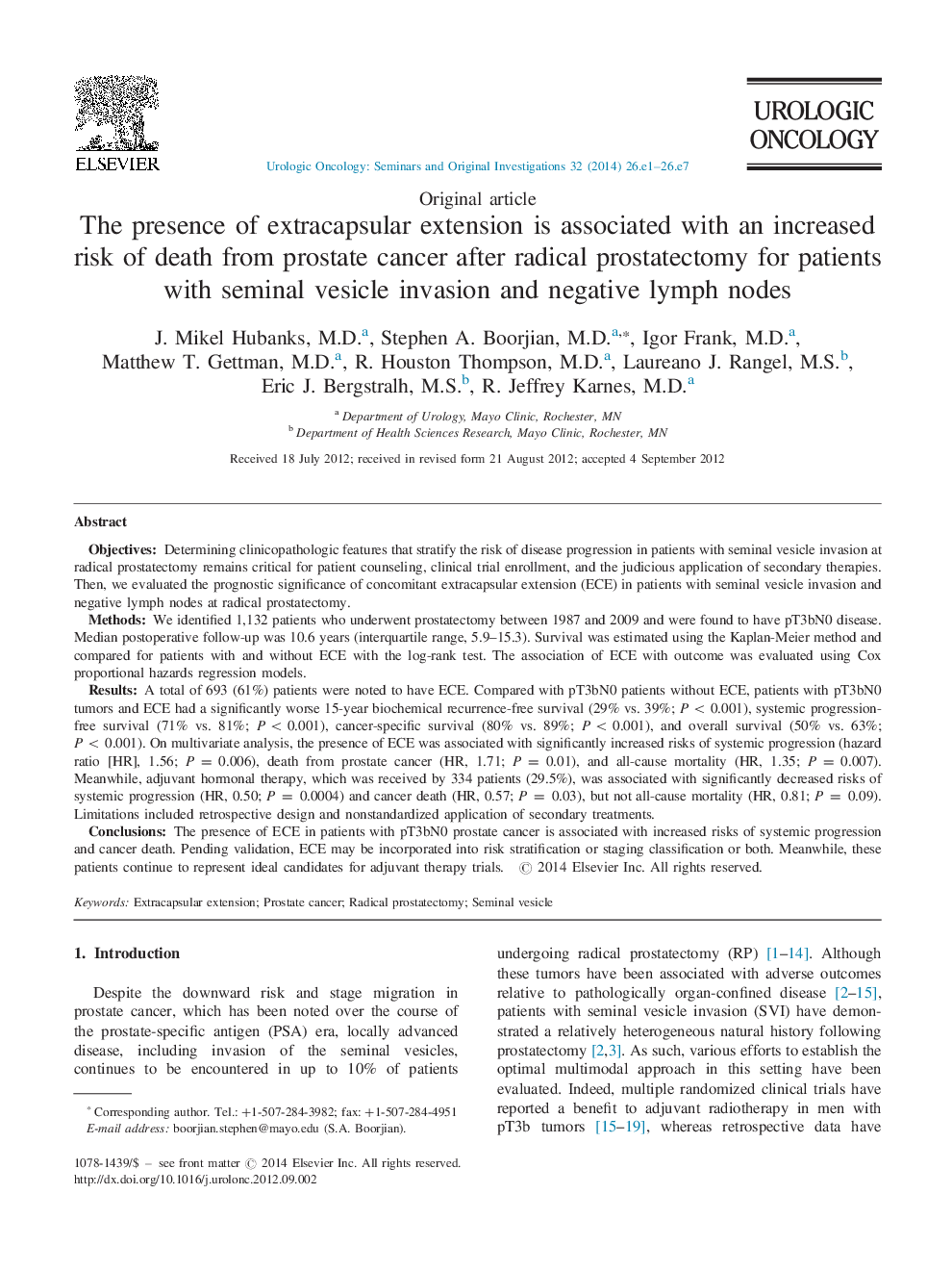| کد مقاله | کد نشریه | سال انتشار | مقاله انگلیسی | نسخه تمام متن |
|---|---|---|---|---|
| 6194377 | 1259362 | 2014 | 7 صفحه PDF | دانلود رایگان |
ObjectivesDetermining clinicopathologic features that stratify the risk of disease progression in patients with seminal vesicle invasion at radical prostatectomy remains critical for patient counseling, clinical trial enrollment, and the judicious application of secondary therapies. Then, we evaluated the prognostic significance of concomitant extracapsular extension (ECE) in patients with seminal vesicle invasion and negative lymph nodes at radical prostatectomy.MethodsWe identified 1,132 patients who underwent prostatectomy between 1987 and 2009 and were found to have pT3bN0 disease. Median postoperative follow-up was 10.6 years (interquartile range, 5.9-15.3). Survival was estimated using the Kaplan-Meier method and compared for patients with and without ECE with the log-rank test. The association of ECE with outcome was evaluated using Cox proportional hazards regression models.ResultsA total of 693 (61%) patients were noted to have ECE. Compared with pT3bN0 patients without ECE, patients with pT3bN0 tumors and ECE had a significantly worse 15-year biochemical recurrence-free survival (29% vs. 39%; P<0.001), systemic progression-free survival (71% vs. 81%; P<0.001), cancer-specific survival (80% vs. 89%; P<0.001), and overall survival (50% vs. 63%; P<0.001). On multivariate analysis, the presence of ECE was associated with significantly increased risks of systemic progression (hazard ratio [HR], 1.56; P=0.006), death from prostate cancer (HR, 1.71; P=0.01), and all-cause mortality (HR, 1.35; P=0.007). Meanwhile, adjuvant hormonal therapy, which was received by 334 patients (29.5%), was associated with significantly decreased risks of systemic progression (HR, 0.50; P=0.0004) and cancer death (HR, 0.57; P=0.03), but not all-cause mortality (HR, 0.81; P=0.09). Limitations included retrospective design and nonstandardized application of secondary treatments.ConclusionsThe presence of ECE in patients with pT3bN0 prostate cancer is associated with increased risks of systemic progression and cancer death. Pending validation, ECE may be incorporated into risk stratification or staging classification or both. Meanwhile, these patients continue to represent ideal candidates for adjuvant therapy trials.
Journal: Urologic Oncology: Seminars and Original Investigations - Volume 32, Issue 1, January 2014, Pages 26.e1-26.e7
